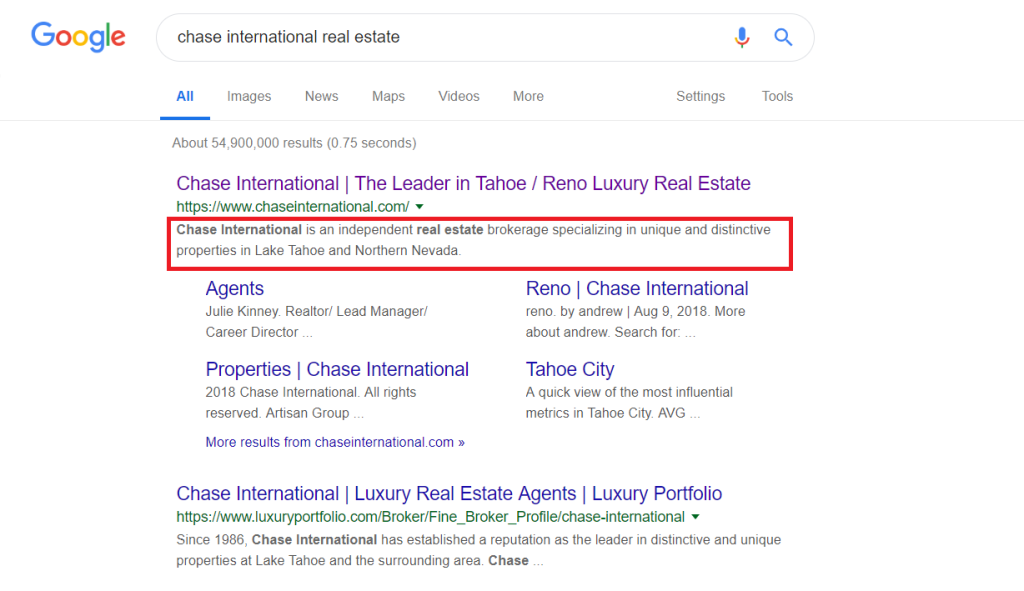SEO myths can hurt your rankings: avoid mistakes like keyword stuffing, ignoring design, or thinking SEO is one-time.
Technology
If you’re reading this article, you probably take your digital real estate marketing strategy seriously and you understand the importance of Search Engine Optimization (SEO) – and for good reason!
If you apply SEO practices to your real estate website and content, you’ll increase the amount of high-value traffic your website gets, and you’ll set yourself apart from competing real estate agents that still don’t understand SEO.
Unfortunately, there are a number of common misconceptions there regarding best real estate SEO practices and how to get your real estate website to rank higher. Not to mention that Search Engines are constantly changing their algorithms.
Let’s take a look at top SEO myths that must be avoided in 2025.
1. Create a new website and you’ll be in the #1 position
Just because you have a new website, doesn’t necessarily mean that you’ll shoot to the top of the search results. This is why having expert web designers are crucial. Real estate websites that are complete with add ons, top-notch visual design, regular upkeep, and helpful tools start off miles ahead of DIY websites.
2. Real Estate SEO is only for improving my site’s position on Google search results
While it’s absolutely true that good SEO can help you rank better in Google searches, that’s not the only benefit of SEO.
Additional benefits include:
- SEO can target quality prospects according to their intent: SEO can help you target customers at all stages of their buyer’s journey.
By carefully choosing your keywords , you can target people that are just gathering information on local real estate, those that are comparing real estate agents, and those prospects that are ready to buy right now.
The right real estate SEO practices can help you attract the exact kind of traffic you need, without spending a single cent in Google ads, or traditional marketing.
- It’s cost-effective: Google ads and other Pay Per Click services (PPC) can get very pricey.
According to Wordstream, the average cost per click in Google ads is around $1 to $2. On the other hand, SEO has very little to no upfront costs.
If you’re willing to invest the time and effort to master real estate SEO best practices yourself, the only cost involved is time.
3. SEO is a one time job
SEO requires consistent upkeep and tracking. New algorithms are consistently being developed and implemented that can affect your website ranking. Not to mention that your users needs are constantly changing and SEO on your websites should evolve at the same pace. We suggest working with your web designer to make sure you have all of the tools in place to continue to rank highly on SERPs )search engine results pages).
4. Design doesn’t affect SEO
If you want to see measurable results from your real estate website, great design is non-negotiable. AgentFire designers make sure that each of our clients’ websites match the highest criteria for design and functionality:
- Contents are indexed for search engines and accessible for all web users
- Images load quickly and clearly, without slowing down the entire web page
- Design is mobile-friendly and displays properly on desktop
- Layout has impressive and attractive visual branding with typography and colors that represent your business identity.
Some factors, such as the medium through which viewers access information (mobile, desktop, tablet etc.) is rapidly hanging with time. Professional designers can continue to update your website so that it is always presented in the best light on each device.
5. Meta descriptions don’t matter
You may have heard that meta descriptions don’t make a huge difference in page ranking. However, there’s more to it than that. The quality and detail of a meta description can be a deciding factor for web visitors. A good meta description tells viewers what they can expect to find and the goal of the article. They also help to create a great (or not so great) first impression for your content.

Some simple ways to win with meta descriptions?
- Write a unique description for each page that is brief but not vague.
- Make sure that your keywords are centre stage in the text.
6. Your homepage needs a lot of content
“Quality over quantity” is a great guideline to live by in general. That maxim holds especially true when it comes to the content on your homepage. Your website’s homepage is “the gateway your business” and overcrowding it with too much information or spammy pop-ups will leave a bad first impression with visitors.

Additionally, Google’s user experience algorithm is designed towards interpreting user intent and delivering results that are most likely to satisfy the searcher.
So if Google realizes that people aren’t satisfied with your site, it could lower your page’s rank, and prioritize your competitor’s website instead!
Keep your homepage content clear and to the point, preferably with engaging CTAs (Call to Action) that help you generate leads for your business but aren’t overly intrusive.
7. The more webpages you have, the better
While there is some truth to the fact that large websites with tons of individual pages have a higher chance of being well ranked, it should be followed by a huge “however.”
Going hand in hand with the previous point, unless those dozens of pages offer specific, measurable and meaningful value to their users, their effect in improving your ranking is negligible.
Sure, you might not be penalized directly (yet) on search engine results because you have 11 pages that say pretty much the same thing, but with slightly different wording. But that approach causes a poor user experience.
And if there’s any pattern to recognize from Google engineers it is that they are constantly modifying their algorithm so that it rewards good user experiences and penalizes bad ones.
Just like with homepage content, less is more. Strive for concise, detailed pages that are easily accessible to your users through site navigation.
8. Images don’t require optimization
As internet download speeds continue to increase, you may think that image size isn’t as important as it was back in the late ’90s and early 2000s (remember dial-up modems? ?).
But that’s simply isn’t true. Any image you add to your site will require optimization.

The main reason why you need to optimize your images has to do with page loading times. The smaller the size of your images, the less time it takes to load them.
Load time is a key factor that Google takes into account with search rankings.
Sure, a huge, high-resolution image may look great on your site, but if it takes take forever to load (by Google standards), it will increase your webpage’s load time and will negatively affect your ranking.
The other side of image optimization is alt tags. Alt tags tell vision-impaired readers and search engines what they can expect to see in the image. After all, bots can’t see images, but they can read alt tags and categorize your pages accordingly.
9. The H1 is the most important on-page element
Once upon a time, heading tags used to be the best way to show Google what was the most important content on a page.
While there is still some value in highlighting the structure of your website, heading tags have been proven to have little to no effect on SEO. Instead of focusing too much on H1 tags, spread your efforts across all factors of SEO.

That being said, heading tags are still important when it comes to the look and feel of your website. Compelling H1 content displayed prominently on your homepage will be the user’s first impression.
10. Keyword optimization is the key to Real Estate SEO
Keyword optimization is definitely important, but it’s by no means the only factor that matters. There are a number of factors that all equally contribute to a good SEO profile. Two that are just as important include:
- Content Quality: High-quality content is always preferred by Google over keyword-heavy content that is specifically created to try and appeal to the search engine, not the user.
- Backlinks: Link building is another huge factor when it comes to your SEO score. When other websites offer links that point towards your site, your website’s credibility and trust with Google increases.
11. The More Keywords, the Better
Even in 2024, some people don’t understand the dangers of keyword stuffing. We all want to rank highly for our chosen keywords, but going overboard can have the opposite effect. If your keywords appear too often on your webpage, search engines will lower the ranking of your page in the search results. Keywords are always better in moderation.
Theres no need to overthink adding too many keywords. Your pages should read and sound natural to your visitors.
12. Use the Most Popular Keywords
In real estate, specific, hyper-local keywords are more important than in most other industries. Location-specific keywords can massively help to raise your websites ranking within a specific geological area. These words include city names, nick names, states, regions, and popular landmarks.
Common, general keywords, on the other hand, are not as efficient in reaching your target clientele and your content is less likely to be found.
Focus on long-tail keywords that are less competitive and more niche so that you can easily dominate those rankings. Real estate webpages with low-volume search terms often return impressive conversion rates.
13. Duplicate Titles and Meta Descriptions
There’s power in the details. Often, website owners copy and paste the same meta description on the every single one of their webpages. But if your pages are not distinguished from one another, they are automatically seen as less valuable individually. Search engines value pages that offer rich, unique online content.

14. Domain Authority is a Major Ranking Factor
Surprise! Domain authority is not a top Google Ranking factor. Google is much more concerned with the quality of your content and how well it does at answering specific user questions.
A webpage that that is well written, contains high quality visual elements, great use of headings and subheadings, and lists or bullet points, is exactly what search engines are looking for. Internal and links and external links to related pages will also help an article preform better than it would with just a high-profile domain.
15. Results of SEO Content are Instant
SEO is not a quick fix to make you an overnight hit online. It may take some time for the positive results of your SEO efforts to show up. On average, it takes about 3 months to really see measurable results. In this time, you’ll want to carefully note what SEO changes you’ve made so that you can measure what positively or negatively affected your growth.
16. Longer Content is Better
Bigger is not always better. The truth is that there is no specific number of words that search engines look for in each articles. The fact that most top ranking pages have approximately 1400 words is closer related to the fact that it often takes that number of worlds to thoroughly explain a subject. The quality and richness of your content should always take priority over hiking up the number of words.
The Bottom Line
SEO is a must if you are looking to maximize lead generation for your real estate website. However, it’s not about just focusing on SEO and relying on Google to grow your business. Provide your users with real value through dynamic, engaging content and the results will be noticeable.
A quick word from our founder and CEO on how to correctly use SEO to grow your AgentFire business:
![16 Real Estate SEO Myths [2025]](https://agentfire.com/wp-content/uploads/2019/08/SEO-myths-featured-image2.jpg)
